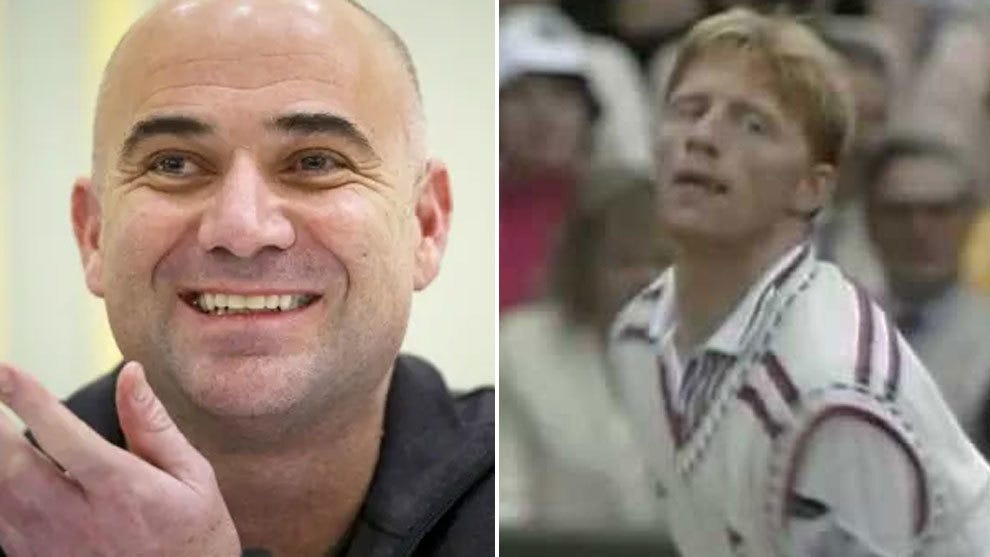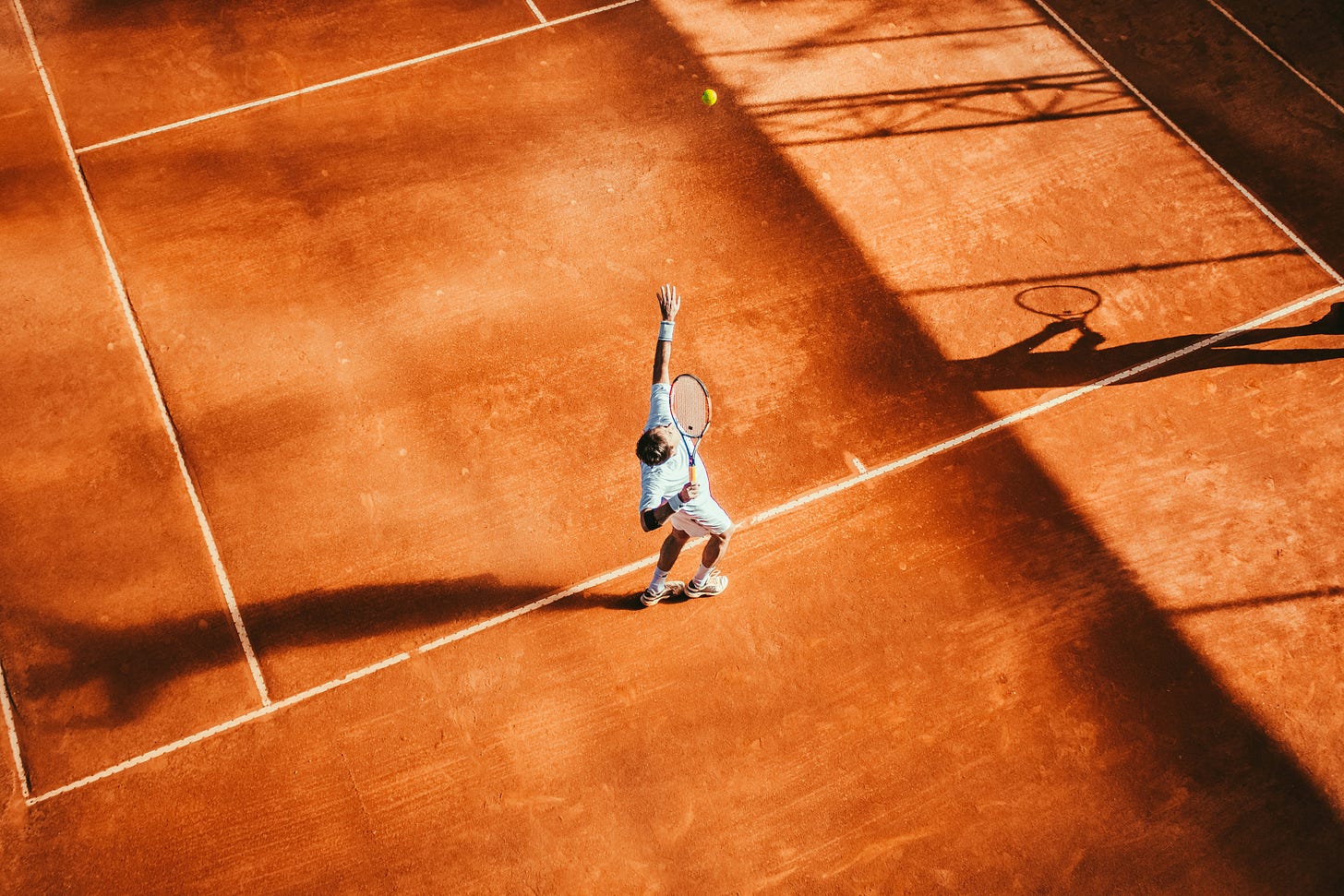🏷️ Categories: Deliberate practice, Continuous improvement, Attention.
It was a crucial match and both players had everything at stake.
Andre Agassi had to find a way to counter the powerful serve of Boris Becker, one of the best servers of all time. Agassi admitted in interviews that he felt cornered, Becker was serving in a way that he did not know how to respond to.
He had already beaten him the first 3 times they met. It was difficult for Agassi.
But Agassi made a decision: to analyse Becker to the millimetre.
After hours of studying him and with the information gathered from the matches, Agassi noticed something peculiar: Becker had a little twitch in his tongue just before serving.
Right when he served, if he stuck his tongue out in the centre of his lips, the serve would go to the centre or to the body. If he moved it to one side, the serve would go to that side. With this information, Agassi learned to anticipate Becker's serves without him knowing it (Marca, 2020).
The hardest part now was not returning the serve, but avoiding getting caught.
Thus, Agassi strategically chose the key moments to use his advantage. A secret weapon that Becker did not know. The tables suddenly turned and now it was Agassi who had Becker cornered. From then on, Agassi won every match, sweeping Becker off the scoreboard time and time again.
Becker confessed after the defeats: ‘I was telling my wife, she seems to read my mind’.
Let's talk about the psychological concept behind Andre Agassi's achievement and how you can develop that same ability to excel in any area.
Selective attention
Think about the last time you went to a restaurant or bar with friends.
The place was crowded and bustling: Voices of diners, you heard the sounds of plates and forks from all the tables, chairs moving, and waiters milling around. But despite all the commotion, you had a beautiful conversation with the person you were, despite all the stimuli, paying attention only to that person's voice.
That's selective attention.
Your ability to filter out the noise and focus on the signal. It sounds like a basic idea, but it has enormous potential if you learn to master it to your advantage.
Selective attention enabled Andre Agassi to win. After analysing thousands of details of Becker's behaviour, he discovered the only stimulus that mattered: the tongue gesture. Then, during the match, despite the fatigue, the tension of the moment and the noise of the spectators, he was able to ignore all the stimuli and from the other end of the court detect the subtle movement of Becker's tongue.
The only stimulus that mattered.
He had trained himself to recognise it, he knew what was signal and what was noise.
He knew what to focus on and what to ignore to win.
The truth about shortcuts
Nowadays everyone is obsessed with finding shortcuts and tricks to improve their performance. I understand, I've felt that need myself. We're all looking for that little-known, easy secret strategy that will make us effortlessly better.
The funny thing is, when you look at the best in the world in any field, what you see is the opposite of a shortcut. You see repetition, effort and focus.
When Cristiano Ronaldo wants to keep his fitness at its peak, he follows a strict diet and rigorous training.
When Magnus Carlsen wants to improve his chess skills, he studies thousands of games and analyses the best moves for each position.
When Simone Biles wants to perfect her gymnastics routines, she repeats each move hundreds of times until it becomes instinctive.
And yes, I know they are unique individuals, with genetics and innate talent, but to attribute all their success to those factors is to ignore something undeniable: they have extreme focus.
They focus on 1 thing, day in and day out.
The importance of measuring
Andre Agassi knew every detail. Like any expert, Agassi measured himself.
How many first serves he hit.
How many unforced errors he made.
How much weight he lifted in the gym.
How fast he moved around the court.
Everything was measured.
Why is this important?
When you have data to show your progress, everything changes. You measure, you analyse and, most importantly, you can improve. Every time you try something new and the result is positive, you have a key stimulus to look at to move in the right direction.
The only way to know what works is through results.
You will learn to focus and eliminate what is holding you back.
Use the information to identify what's working. And once you find it, spend time doing it over and over again, ignore the rest. That's how you filter out the noise and keep the signal, it's pure selective attention.
And the only way to know what works is to spend time on it until you become an expert.
✍️ It's your turn: In which areas are you going to start measuring and focusing on the stimulus that matters? We live in an increasingly distracted and information-saturated world, being able to focus is on its way to being a superpower....
💭 Quote of the day: ‘I don't try to focus on anything that doesn't affect me personally and how I go out there every day. I'm just going to keep working hard and focus on what I can control.’ Tim Tebow.
See you next time, all the best! 👋










Daily practice until it becomes muscle memory. I wish I had that discipline. Thank you, Alvaro, for this reminder. It amazes me how much goes in to physical training of any kind: playing an instrument, playing a game, mastering a sport